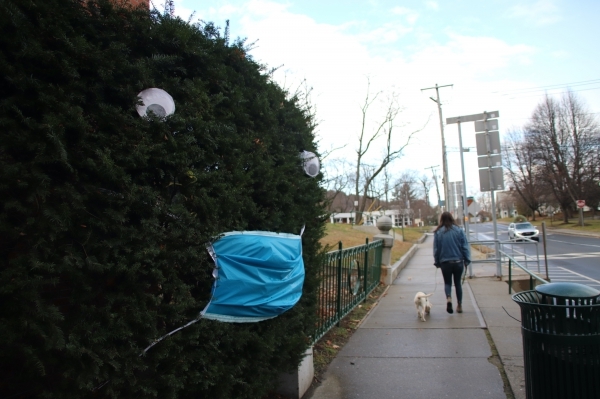BRATTLEBORO — As most Vermonters talked up Town Meeting Day last week, Brattleboro government leaders - who spent months actively pushing for a state law allowing municipal mask mandates - needed only 10 minutes to quietly lift their own.
Though Windham County has among the lowest regional COVID-19 case rates, Brattleboro officials know the conversation isn't over.
“People are going to feel differently about it,” Selectboard member Daniel Quipp said at a meeting overshadowed by the reporting of vote results. “Some will be really happy seeing people not wearing masks, but many are going to be really nervous.”
“Wearing a face covering is an important act we can do in an effort to protect others from an infection that we may not even know we have,” the town's original local emergency order read in part.
The Selectboard went on to drop the mandate last June as vaccines proliferated, only to change policy last August upon learning of a rise in transmission of the virus' highly contagious Delta variant.
But Gov. Phil Scott, having lifted a COVID-19 state of emergency that allowed local orders, wouldn't approve a new municipal mandate. He instead suggested action by the state Legislature, which took testimony from Brattleboro leaders before granting permission in S.1, “an act relating to temporary municipal rules in response to Covid-19.”
Brattleboro became the first community to approve a state-sanctioned mandate in November, following the law that allows municipalities to adopt orders as long as they review such measures every 30 days and rescind them by April 30, 2022.
The Selectboard renewed the mandate during a surge of the omicron variant in December, January, and February, only to pause this month when it learned Windham County case counts were below thresholds set by the U.S. Centers for Disease Control and Prevention.
“I would say, given our rule was hinged upon following CDC guidance, we should end it to align with that,” Quipp said at the board's most recent meeting.
“Should our situation change, we should be ready to put this important public health measure back into place,” he said.
All four of Quipp's fellow Selectboard members agreed.
“It would go in the face of how our board has been navigating this entire pandemic if we were to do anything that was in opposition to the CDC guidelines,” Selectboard Vice-Chair Ian Goodnow said.
By dropping its mandate, Brattleboro is following the same course as the state Agency of Education, which is allowing public schools to lift advisory requirements if the student vaccination rate is over 80 percent, and the state's largest city, Burlington, which chose not to renew its rule this month.
Some two dozen other Vermont cities and towns adopted similar mandates, which, if continued, would expire at the end of next month.
Brattleboro Selectboard member Jessica Gelter, while concurring with her colleagues, reminded all of the fine print.
“The CDC also recommends that folks who are unvaccinated or immunocompromised continue to practice measures like masking and social distancing because there's still a risk of transmission and potentially more severe consequences for them,” she said. “I think that's also important to mention.”
Gelter added that, although the town was lifting its municipal mandate, businesses and organizations were free to retain their own mask requirements.
“I want to call on our community to respect each other's choices to protect their staff, their unvaccinated folks, their folks caring for at-risk individuals,” she said.
Added board member Tim Wessel: “This board is not making any recommendations for personal behavior, whether or not you should continue to wear a mask. Because some people will decide they really should for a few more weeks, and others will feel they were done a few months ago.”
And Quipp: “People have lost family members and experienced hospitalization, illness and inconvenience. I think that we just need to be kind to one another over this transitional period.”
Board Chair Elizabeth McLoughlin noted one challenge in ensuring that happens.
“I wish we could legislate kindness,” she said, “but we can't.”
